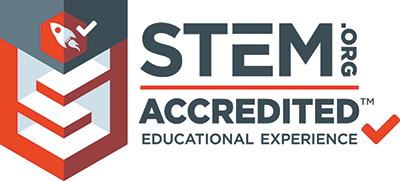Scientific Inquiry
Grade 6 Science Worksheets
How Scientists Work
How do scientists work?
What methods do they apply?
What is the process of scientific inquiry?
Working in the field of science requires discipline. Scientists must apply systematic methods to make observations and collect facts. These methods enable them to make discoveries or to develop theories.
Many of these systematic methods came into existence during the Scientific Revolution of the 16th century CE. Numerous discoveries, inventions, hypotheses, theories, were made during that time. (See also: Nature of Science). Many earlier thoughts and theories were proved wrong or were built upon and enriched with new thoughts and evidence. Put your knowledge to the test with this challenging 6th Grade Science Worksheet! Read each question carefully and choose the response that you feel is correct.

Schedule a Free session to clear worksheet doubts
No credit card required, no obligation to purchase.
Just schedule a FREE Sessions to meet a tutor and get help on any topic you want!
Scientific Methods applied by Scientists
In order to establish these new discoveries, inventions, and theories, scientists needed to deploy many systematic methods. Here are the many systematic scientific methods and inquiry process employed by scientists, with examples –Doubts? A 6th-grade science tutor can help.
- By observing nature – scientists like Copernicus and Galileo observed the motions of heavenly bodies, Charles Darwin studied plants and animals to evolve the Theory of Evolution.
- By classifying data – scientists interpret and analyse data and organize it to make meaningful sense to everyone else, for example, Mendeleev classified all the natural elements to form a Periodic Table.
- By using logic or reasoning to draw conclusions, such as when Newton deduced Gravity by observing an apple fall to earth.
- By conducting experiments – scientists were able to determine the laws of nature, the circulation of blood, the properties of light, all by carrying out a variety of experiments
- By forming a hypothesis – scientists use talent, skill, and creativity to form a hypothesis and then conduct experiments to test the hypothesis. For example, the planet Neptune was discovered on a hypothesis based on observing the movement of Uranus.
- By expressing findings mathematically – many famous scientists like Galileo, Newton, and Einstein wrote mathematical equations to establish the laws of nature.
eTutorWorld Understands Math Tutoring | Online Math Worksheets are Important Tools
Understanding graphs, charts, and opinion polls in a newspaper, for calculating house and car payments, and for choosing a long-distance telephone service are impossible without strong math skills …and the only way to develop strong math skills is by constant practice.
‘Practice makes a man perfect’ holds true for no other field better than for math. A middle or high school student must set aside a minimum of an hour for math every day. Other than textbooks, worksheets help you revise and understand concepts better.
Our expert tutors prepare online maths worksheets that are age and grade-appropriate. Grade-wise math worksheets for Elementary Math, Arithmetic, Pre-Algebra, Algebra, Geometry, Trigonometry, Statistics, Pre-Calculus and Calculus can be solved to improve math skills, to get ahead or to even catch up.
You may download these FREE online math worksheets in the PDF format, and then print and email us their solutions for a free evaluation and analysis by eTutorworld’smath expert tutors.
You may solve these worksheets by yourself or with your peers while studying together.
The Answer Key at the end of each worksheet allows for a self-evaluation.
Personalized Online Tutoring
eTutorWorld offers affordable one-on-one live tutoring over the web for Grades K-12, Test Prep help for Standardized tests like SCAT, CogAT, MAP, SSAT, SAT, ACT, ISEE and AP. You may schedule online tutoring lessons at your personal scheduled times, all with a Money-Back Guarantee. The first one-on-one online tutoring lesson is always FREE, no purchase obligation, no credit card required.
For answers/solutions to any question or to learn concepts, take a FREE CLASS.
No credit card required, no obligation to purchase.
Just book a free class to meet a tutor and get help on any topic you want!
The scientific revolution era brought into existence many laws and rules for working in science, which we follow even today –
- Observing and Recording data
- Conducting Experiments and Testing prove a scientific theory
- Using Logic and Hypotheses to form a theory
- Using Inference and Prediction to prove a theory
- Sharing the data and observations of a scientific inquiry for review by other scientists
- Establishing “Universal Truths” only on the basis of scientific thought, theory, and discovery
- Publishing only proven and accepted scientific outcomes
- Insisting on Ethics, Integrity, and Honesty in the process of scientific discovery

Check Point
- Many systematic scientific methods of working came into existence during the ________.
- Which of the following is NOT a systematic scientific method?
- Forming a hypothesis
- Conducting experiments
- Guessing the result
- Observing nature
- Which of these is NOT a scientific inquiry process?
- Observing and recording data
- Publishing untested results
- Inferring and predicting to prove a theory
- Sharing the data and observations for review
- What is Dalton’s Atomic Theory?
Answer Key
- Scientific Revolution
- c) Guessing the result
- b) Publishing untested results
- Dalton’s Atomic Theory was the first scientific theory to relate chemical changes to the structure, properties, and behavior of the atom.
Picture Credits:
https://lh3.googleusercontent.com/pw/ACtC-3cClHokWWH_yhN63o1Ixh64KjZxGGqK8kDEPZNj-PttQhIIShwGs4gLwanR0QI2wiVRyFNza98r8zqd-M8nhaDvhybW8CwwqoA2ncSLTFC5dDHtSLrb4j2yLICI9mMYGE_0_v0-8od3fhFLlHeJCwqg=s867-no
Schedule a Free session to clear worksheet doubts
No credit card required, no obligation to purchase.
Just schedule a FREE Sessions to meet a tutor and get help on any topic you want!
Pricing for Online Tutoring
| Tutoring Package | Validity | Grade (1-12), College |
|---|---|---|
| 5 sessions | 1 Month | $139 |
| 1 session | 1 Month | $28 |
| 10 sessions | 3 months | $269 |
| 15 sessions | 3 months | $399 |
| 20 sessions | 4 months | $499 |
| 50 sessions | 6 months | $1189 |
| 100 sessions | 12 months | $2249 |
6th Grade Free Worksheets
- Inquiry process
- Nature of Science
- Scientific Inquiry
- Inquiry, Analysis and Problem Solving
- Ethical Practices
- Science and Society
- Biotic and Abiotic Factors
- Impact of Organisms
- Adaptation
- Spheres of Earth
- Natural Resources
- Environmental Issues
- Conservation of Earth
- Understanding Technology
- Abilities To Do Technological Design
- Structure of Earth
- Solar System
- Rocks and Fossils
- Earth Systems
- Plate Tectonics
- Evolution
- Magnetic Field of Earth
- Geologic Time
- Materials and Processes That Shape a Planet
- Astronomy
- Ecology
- Energy
- Kinetic and Potential Energy
- Energy Transfer
- Matter and its Structure
- States of Matter
- Physical and Chemical Changes
- Force and Motion
- Electricity and Magnetism
- Wave Interactions
- Sound
- Light
- Introduction to Life Science
- The Origin & History of Life On Earth
- Plant and Animal Cells
- Parts of a Cell
- The Cell Cycle
- How Living Organisms Get Energy
- Classification of Organisms
- How Plants Grow & Reproduce
- The Human Respiratory System
- The Human Cardiovascular System
- The Human Digestive System
- The Human Endocrine Systems
- The Human Nervous System
- The Human Muscular System
- The Human Skeletal System
IN THE NEWS

Our mission is to provide high quality online tutoring services, using state of the art Internet technology, to school students worldwide.
Online test prep and practice
SCAT
SSAT
ISEE
PSAT
SAT
ACT
AP Exam
Science Tutoring
Physics Tutoring
Chemistry Tutoring
Biology Tutoring
Math Tutoring
Pre-Algebra Tutoring
Algebra Tutoring
Pre Calculus Tutoring
Calculus Tutoring
Geometry Tutoring
Trigonometry Tutoring
Statistics Tutoring
Quick links
Free Worksheets
Fact sheet
Sales Partner Opportunities
Parents
Passive Fundraising
Virtual Fundraising
Our Expert Tutors
Safe and Secure Tutoring
Interactive Online Tutoring
After School Tutoring
Elementary School Tutoring
Middle School Tutoring
High School Tutoring
Home Work Help
Math Tutors New York City
Press
©2022 eTutorWorld Terms of use Privacy Policy Site by Little Red Bird
©2022 eTutorWorld
Terms of use
Privacy Policy
Site by Little Red Bird






